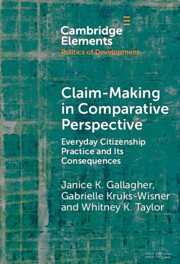1 results

Claim-Making in Comparative Perspective
- Everyday Citizenship Practice and Its Consequences
-
- Published online:
- 16 February 2024
- Print publication:
- 14 March 2024
-
- Element
- Export citation

